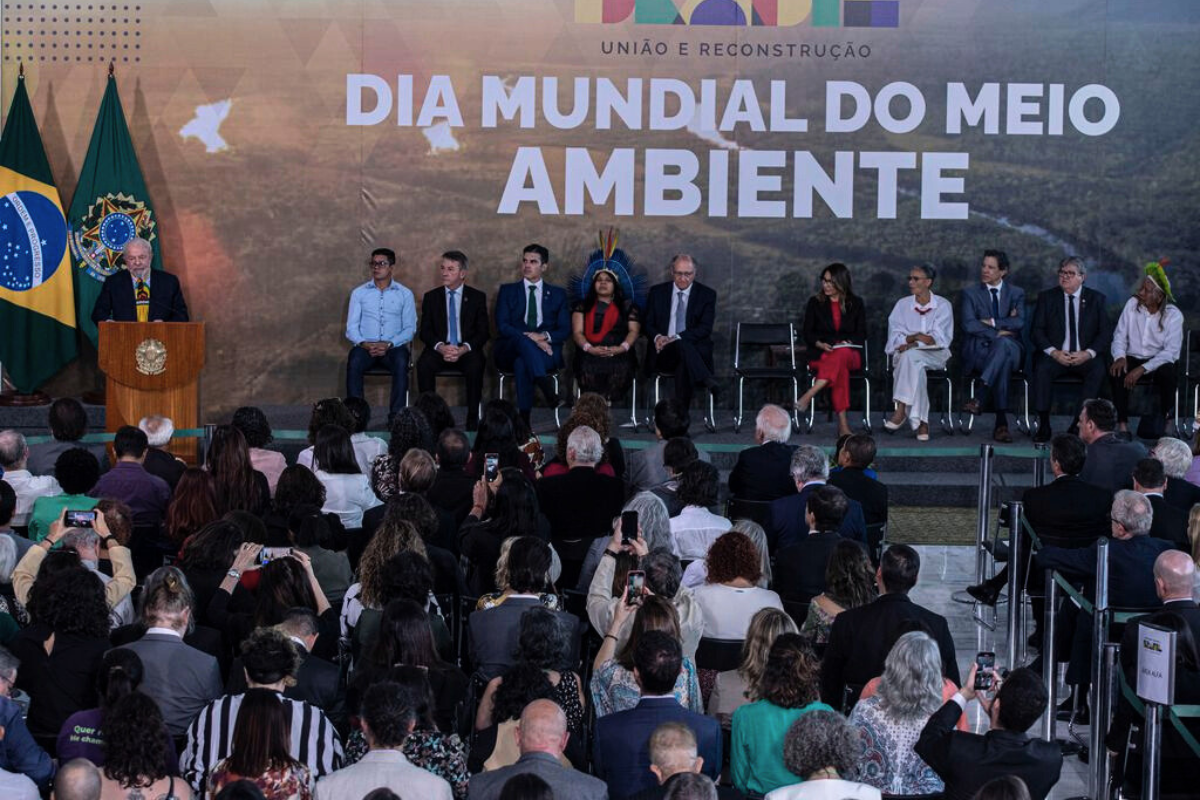President Luiz Inácio Lula da Silva on Monday pledged to review Brazil’s goals under the 2015 Paris Agreement on climate change, in order to restore the country’s original commitment.
The Jair Bolsonaro administration twice changed the baseline of Brazil’s Nationally Determined Contribution (NDC), effectively providing more leeway in terms of carbon emissions than the original commitments made under the Paris Agreement. Back in February 2022, The Brazilian Report first showed the draft of the second goal post change.
“The environment has once again become a priority after four years of neglect and abandonment,” Lula said at a World Environment Day ceremony in the presidential palace in Brasília. “I am committed to returning to Brazil’s world leadership in mitigating climate change and controlling deforestation.”
During most of Lula’s first spell as president (2003-2010), deforestation levels dropped. This was partly due to a policy spearheaded by then-Environment Minister Marina Silva’s of investing in satellite coverage of the Amazon rainforest in order to detect and prevent deforestation.
Ms. Silva, who quit the Lula government in 2008, is now back in her old post as environment and climate change minister. Her ministry and the environmental agenda suffered setbacks following the recent approval of a bill in Congress, which moved the federal sanitation agency to a different ministry. The demarcation of indigenous lands, an important tool for environmental preservation, was transferred to the Justice Ministry, away from the Indigenous Peoples Ministry.
Minister Silva said she disagreed with the Congress-led changes, and added that bringing socio-environmental protection and the issue of climate change to the center of the government’s priorities is “the greatest asset that Brazil has to insert itself in the world, to attract investment, to generate jobs.”
“Economy and ecology are part of the same equation,” Ms. Silva said.
Both Ms. Silva and President Lula made references to the Brazilian indigenous expert Bruno Pereira and British journalist Dom Phillips, who were murdered in the western Amazon one year ago today.
Lula said that “Bruno and Dom deserved to be here today,” and that the current government would be their ally, as opposed to the previous administration.
Ms. Silva stressed that Mr. Pereira was fired from a position at Brazil’s federal indigenous agency due to his work “displeasing” those in power at the time. He was fired in late 2019 after leading an operation against wildcat miners at the Yanomami Indigenous land in the northern state of Roraima, in the Amazon. His dismissal was signed by Luiz Pontel de Sousa, the deputy justice minister at the time, who worked under now-Senator Sergio Moro.
The Bolsonaro administration was openly supportive of wildcat miners and staunchly opposed the demarcation of indigenous lands.


 Search
Search






































